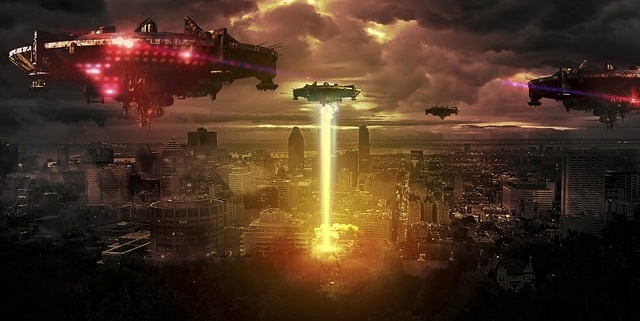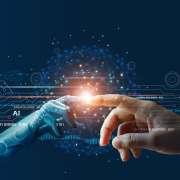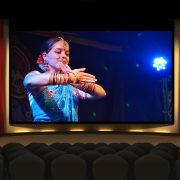AI Will Generate a Hollywood Blockbuster: Revolutionizing the Film Industry with Cutting-Edge Technology
The Emergence of AI in Cinema
The entertainment industry is standing on the brink of a revolution, with Artificial Intelligence (AI) poised to radically transform how Hollywood blockbusters are created. The integration of AI in filmmaking is not merely a trend but a burgeoning reality that promises to redefine the creative landscape. From scriptwriting to cinematography and editing, AI’s influence is permeating every facet of film production, heralding a new era of cinema that is both innovative and intriguing.
AI-Driven Scriptwriting: Crafting Compelling Narratives
One of the most groundbreaking applications of AI in Hollywood is in the realm of scriptwriting. AI algorithms are now capable of analyzing vast amounts of data from existing films to generate storylines that resonate with specific audiences. These AI systems can identify successful plot patterns and character arcs, which are then used to create compelling narratives. This not only speeds up the scriptwriting process but also enhances the narrative depth, making films more engaging and emotionally intelligent.
Transforming Cinematography with AI
In cinematography, AI is transforming the way scenes are shot and produced. AI-powered cameras can autonomously adjust focus, lighting, and angles in real-time to capture the perfect shot. This technology enables filmmakers to achieve a higher level of precision and consistency, ensuring that every frame aligns perfectly with the director’s vision. Furthermore, AI can analyze the emotional tone of a scene and suggest adjustments to camera movements, lighting, and angles to better convey the intended emotions.
Revolutionizing Post-Production
Post-production, traditionally a labor-intensive phase, is also benefiting significantly from AI. With advanced algorithms, AI can automate editing, sound design, and visual effects, drastically reducing the time and effort required to finalize a film. AI can seamlessly edit thousands of hours of footage into a coherent and captivating narrative, detect and correct errors in real-time, and even generate realistic visual effects that are both cost-effective and visually stunning.
AI in Casting and Performance Analysis
AI’s impact extends to casting and performance analysis as well. AI systems can analyze past performances and audience reactions to suggest actors who might be best suited for new roles. Additionally, during the filming process, AI technologies can offer real-time feedback on actors’ performances, providing directors with insights that can enhance the portrayal of characters and the overall emotional impact of the film.
Enhancing Viewer Engagement through Personalized Experiences
Perhaps one of the most exciting prospects is AI’s role in creating personalized viewing experiences. AI can tailor trailers and promotional content to individual preferences, enhancing engagement and anticipation for a film. Furthermore, AI-driven analytics can help producers understand audience preferences in unprecedented detail, enabling them to make data-driven decisions about film distribution, marketing strategies, and even direct sequel development.
The Ethical Considerations and Future Outlook
While the potential of AI in filmmaking is immense, it also raises significant ethical considerations. The fear of diminishing the role of human creativity and the potential misuse of AI in manipulating audience emotions are pertinent issues that the industry must address. However, with proper regulations and ethical guidelines, AI can be harnessed responsibly to enhance the art of filmmaking rather than diminish it.
As we look to the future, the possibilities of AI-generated films are virtually limitless. With each advancement in AI technology, the boundaries of what can be achieved in filmmaking expand, promising a future where AI and human creativity coalesce to create cinematic masterpieces that are not only technologically advanced but also deeply human and resonant.
Empowering Audiences: Generating Full Seasons of Canceled Shows or Sequels to Favorite Movies
One of the most intriguing applications of AI in entertainment is its capability to empower audiences by generating full seasons of canceled TV shows or crafting sequels to their favorite movies. This technology leverages vast datasets of existing content, character developments, and plot trajectories to produce new episodes or films that remain true to the original material. Fans of discontinued series can experience closure or continuation of their beloved narratives, thanks to AI’s ability to analyze and mimic the storytelling style, thematic depth, and character arcs of the original creators. Furthermore, this tool democratizes content creation, allowing viewers to have a say in the stories they want to see developed, thus fostering a new form of interactive and participatory entertainment. This innovative use of AI not only revives interest in older or unfinished series but also opens up possibilities for expanding narratives in directions previously constrained by commercial considerations or abrupt cancellations.
Conclusion
The integration of AI in Hollywood is not just an innovation; it is a transformative force that is set to redefine the norms of filmmaking. As AI continues to evolve, its role in the film industry is expected to grow, leading to more sophisticated and engaging cinematic experiences. The future of Hollywood lies in the synergy between human creativity and artificial intelligence, a paradigm that promises to bring to the screen stories that are not only told but are truly felt.






